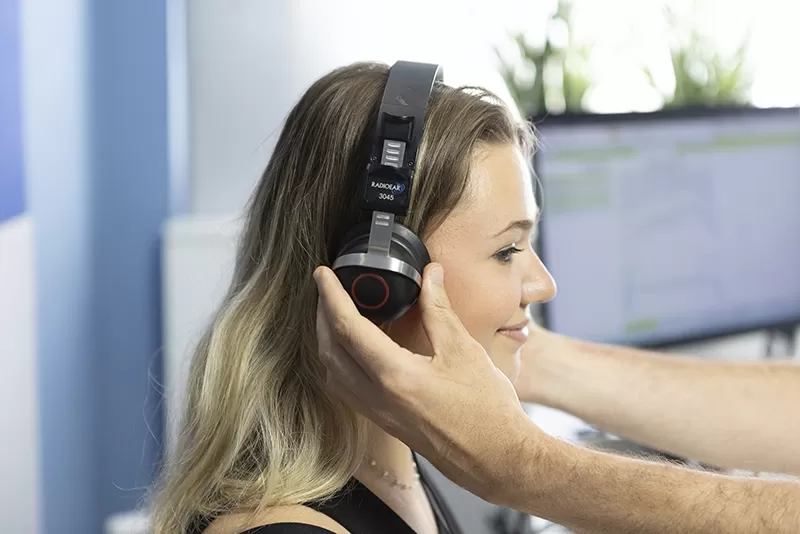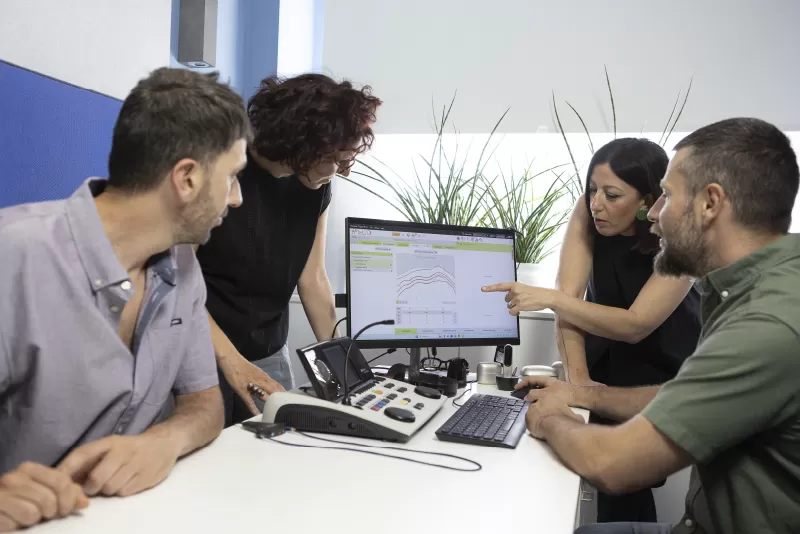Our ears are organs that receive signals from different directions.
How We Hear
Through complex processes carried out by the organs of the ear (auditory canal, drum, cochlea, auditory nerve) these signals are processed and sent to the brain for interpretation. Therefore, in order to hear well, both our ears must be fully functional.
But what happens when this is not the case?


Hard of hearing and solution
Hard of hearing is hearing impairment. It is a common problem that can occur at all ages with greater frequency in the elderly.
It is divided into two categories:
- Conductive hearing loss:
It is hearing loss related to damage to the sound transmission system - Sensorineural hearing loss:
It is hearing loss that involves a problem in the inner ear or the auditory nerve.
Technology can now provide the solution to most cases of hearing loss. The new generation “state of the art” hearing aids can be customized to meet the particular needs of the user’s lifestyle and dramatically improve their quality of life. Deaf people who use them can once again communicate comfortably and actively participate in every activity.
Hearing with TWO EARS
The hearing center of the brain is based on two independent microphones, our ears.
When either works there is difficulty locating the audio direction. For this often in noisy environments, there is difficulty in understanding one’ s speech and the auditory stimulus is not processed balancedly.
With two ears, we achieve listening with less effort, more enjoyable and at the same time with better clarification of speech in noise.
For people who have heaviness in both ears, the application of two headphones is the solution for the perfect approach to real hearing.
The result?
More confidence and better quality of life.

Tinnitus
Tinnitus is the noise that one hears in one’s ear without actually having any source of sound. This noise varies from person to person in terms of its timbre or intensity and resembles whistling or whistling.
During the day, tinnitus is not particularly noticeable, as the ambient noise covers it. However, at night when the environment is quiet, they become particularly annoying and often unbearable. The application of a headset that has tinnitus management programs can help sufferers by significantly improving the condition and effectively supporting the treatment that the ENT doctor will indicate.
These programs provide a relaxing sound background that compensates for tinnitus noises and relieves users of their unpleasant effects. Our specialized hearing care professionals are trained in dealing with tinnitus to achieve the best possible adjustment depending on the case.
I Listen Well, ? Communicate and Enjoy Life!
How are hearing problems and dementia linked?
The constant effort that older people with hearing loss make to grasp and understand the sounds around them creates an overwhelming “cognitive load” on the brain.
In people with hearing loss, the parts of the brain responsible for the reception and processing of sounds receive less stimulation than they should, causing them to become inactive and shrink, thus adversely affecting other cognitive functions such as attention and memory.
As a result, due to the extreme difficulty in communicating and the negative emotions resulting from this situation, they avoid social interaction and become isolated, which is a risk factor for dementia.